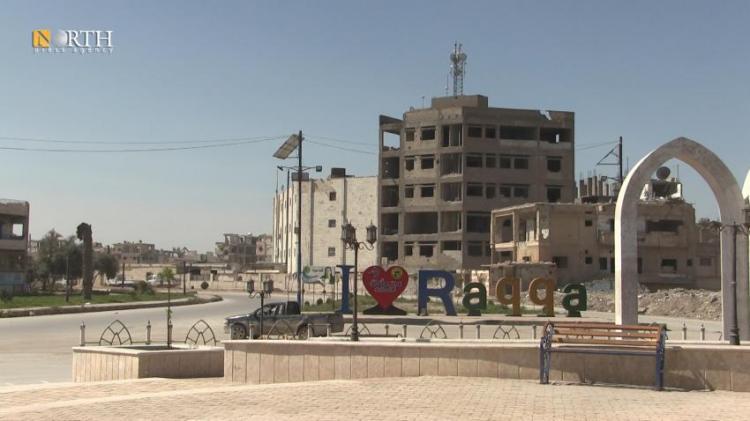RAQQA, Syria (North Press)- Various medical specialists launched an initiative in Raqqa city on Wednesday for free checkups for low income individuals and families who lost their breadwinner due to the deteriorating economic situation and bad living conditions.
After the sanctions took effects, the Syrian pound collapsed rapidly, which led to an increase in the rent as well as prices of food and medicine. This also worsened the suffering of families with limited incomes, especially the displaced, whose members suffer from illness and need continuous treatment.
Sua’d al-Ali, a mother of five displaced from the Idlib country side, told North Press that “the initiative helped me to continue my son’s treatment because the doctor checked him for free.”
“The doctor treated my kids without any complaint. He made a special list of the patients’ names, who are treated for free, there is no need to explain my conditions to the nurse every time,” al-Ali added.
Ra’ed al- Fadel from Raqqa city, who suffered from second-degree burns on his hands while using a gas stove, said that he went to a doctor who treated him for free.
"I went through difficult circumstances after I stopped working as a porter due to my injury. The nature of my work requires physical effort. The fire was also a reason why I was unable to pay for my treatment, so I had to go to a doctor who can treat me for free,” he added.
Like other Syrian cities, Raqqa city witnessed many initiatives during the lockdown to help low income families, including the distribution of food baskets, bread, children’s clothes, and collecting and distributing monetary donations. However, the high cost of living worsened their situation more than before.
Pediatrician Ali Sharif told North Press that he “used to treat some low income families in my clinic for free, but the situation is different now. The number of the displaced, low-income families, widows and orphans have increased recently. And the city's residents living conditions worsened.”
"If we who have fixed income and suffer from the high cost of living that the region is going through, what about those who have no income? I can’t refuse help to those who came to me asking for free treatment,” Sharif added.
“I assigned a register for people with limited income, which includes about 125 names of those who cannot afford the cost of treatment, in order for them to not to feel embarrassed in front of other patients." he said.
Dermatologist Said Shalebi al-Qassem told North Press that he launched his initiative after similar ones by doctors from other specialties in Raqqa, to ease the suffering of patients and in solidarity with other doctors.
His initiative is not only limited to the residents of the city of Raqqa and its countryside, but also includes the residents of the northern and eastern regions of Syria and those displaced to it.
Despite numerous statements by US officials that the Caesar Act does not target Syrian civilians and exempted North and East Syria, the negative consequences of the act have appeared as it entered into effect.
The UN Food Agency warned on Thursday that growing desperation in Syria could lead to further mass exodus, "unless donor countries send more money to alleviate hunger. Meanwhile, the Tel Kochar )al-Yaarubiyah( crossing, that was used by the United Nations to deliver aid to northern and eastern Syria, remains closed due to the Russian veto on its reopening.
(reporting by Ahmed al-Hesen, editing by Lucas Chapman)

